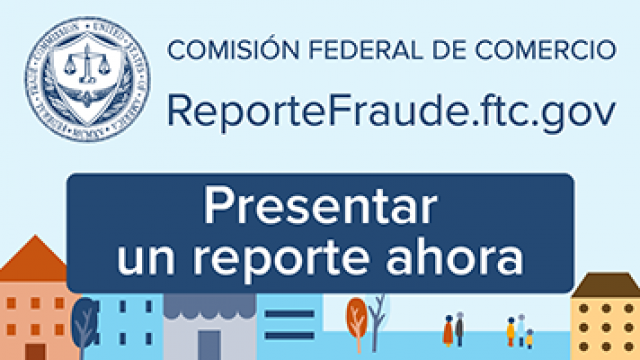Learn about the latest scams, and get advice to help you avoid, report, and recover from them.
New tools to fight gift card scams
This holiday season (and year-round), gift cards are on scammers’ wish lists.
Wrapping up 2020 with more car wrap scams
We just heard from more companies that scammers are using their names to trick people into a car wrap scam
Fake Clorox and Lysol websites try to take people to the cleaners
Scammers follow the headlines. They take advantage of what’s happening in the news to find new ways to get people to part with their money.
Non-filers: Expect a letter about your stimulus check
If you don’t usually file a tax return, or didn’t file a return for 2018 or 2019, you might not know yo
Threatening phone scams are targeting parents and immigrants
Two disturbing phone scams have popped up on the FTC’s radar.
How to spot, avoid, and report imposter scams
Imposter scams often begin with a call, text message, or email.
Overpaid your utility bill? That’s probably a scam
You get a robocall saying you paid too much on a utility bill. To make up for this mistake, they say, you’ll get a cash refund and a discount on your future bills.
COVID-19 clinical trial: real or fake? Learn how to tell the difference.
There are thousands of trials underway as companies race to find effective vaccines and treatments for COVID-19. Many of these research studies are legitimate, but some are not.
Temporary stop of COVID-19 evictions: what you need to know
In September, the Centers for Disease Control and Prevention (CDC) issued a temporary order to stop evictions due to the COVID-19 pandemic.
Did someone tell you to pay with gift cards? It’s a scam
Maybe someone said you’ve won the lottery, a prize or sweepstakes.
Scammers prey on your kindness during disasters
Wildfires raging out West. The hurricane season. Civil unrest.
Fake check scams and your small business
If someone you don’t know sends you a check and asks for money back, that’s a scam. But what if you’re a small business owner and someone “overpays” you and asks you to refund the balance?
Tips to help you prepare for — and recover from — natural disasters
More than 85 large wildfires are ripping across the West Coast, from California to Oregon and Washington.
Empowering the Latino community to avoid and report scams
Every year, Hispanic Heritage Month gives us a chance to reflect on the great contributions Latinos have made to society.
Scammy PPE sellers exploit COVID-19 fears
Last month, the FTC filed its first case against an online seller that failed to ship next-da
Those free COVID-19 money offers on WhatsApp and Facebook are scams
Have you seen a message on WhatsApp or Facebook offering you free help during the pandemic?
Steer clear of work-at-home scams
As the Coronavirus continues to spread, you may be looking for ways to make money without ever stepping foot outside your door.





